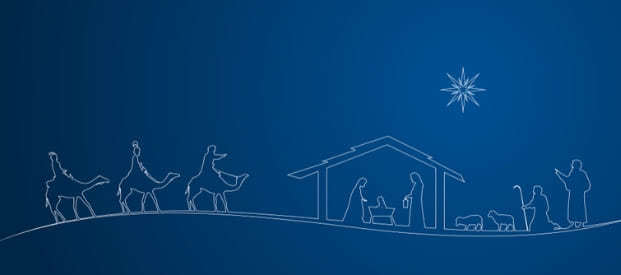Why is Christmas Day on 25 December?
On 25 December more than a third of the world’s population will celebrate Christmas Day. But this is not the only date on which the birth of Christ is remembered. In many eastern countries people will celebrate Christmas on 7 January, while in Armenia the date will be 6 January.
So why do we celebrate on 25 December and what are the reasons for the different dates for Christmas?
The Bible doesn’t mention the date of Jesus’ birth even though it gives detailed information about the time of his death. For the early Christian church, the date of baptism was far more important than the birth, and any celebration of birth was considered a pagan tradition, so for the first two centuries after Christ’s death there was little interest in his birth date and it is unlikely that there was any celebration of this event at that time.
In about 200CE, Clement of Alexandria wrote about the date of Jesus’ birth, noting many different days suggested by different Christian groups, but he includes no mention of 25 December.
It’s not until the fourth century CE that references in ancient documents begin to mention 25 December and 6 January as possible dates of Christ’s birth. In an almanac dated 336CE we find the first reference which reads: ‘25 December: natus Christus in Betleem Judeae’ or ‘Christ was born in Bethlehem of Judea’. Not long after this, Pope Julius I confirmed officially that the Nativity would be celebrated on 25 December.
Why choose 25 December?
There are many different explanations and theories behind the early Christians’ decision to celebrate the birth of Christ on 25 December. Popular theories suggest that the date was chosen to coincide with the Roman midwinter Saturnalia festival or the festival of the sun god, Sol Invictus. The idea was that if Christmas looked like a pagan holiday, more pagans would take part and be open to the God whose birth it celebrated, thus encouraging the spread of Christianity. However, this is unlikely to be the reason for this choice of date. Although it’s true that the early Christian church did link its festivals to the dates of pagan events, there’s no evidence of this practice until well after the date of 25 December was confirmed in the mid-fourth century.
A more scholarly theory, found in ancient documents from as early as the fourth century, is that Jesus was conceived and died on the same day of the year – 25 March, the date of Passover – and thus his birth would have occurred nine months later on 25 December. Although this sounds strange today, it reflects ancient and medieval beliefs that prophets like Jesus were conceived and died on same day of the year.
Others believed that Christ was born nine months after the anniversary of the creation of the world on 25 March. This also meant that his birth date would be 25 December.
Most Christians now accept 25 December as the date of Christ’s birth and 6 January is known as the Feast of the Epiphany.
Why is Armenian Christmas on 6 January?
Many historical sources indicate that 6 January was the earliest recorded date of the birth of Christ, and this is why Armenian Christians celebrate on this date. They take the name of their festival, Haydnootiun, from the feast of Theophany, a festival which encompassed all the events relating to Christmas. It began in early April with the Annunciation, continued with Christ’s birth and baptism, and ended with the commencement of his public ministry.
Why do many countries celebrate on 7 January?
In many eastern countries the Orthodox Church follows the belief that Christ’s birth took place on 25 December but they celebrate on 7 January because of a difference in calendar dates.
Whilst most of the world now uses the Gregorian calendar which was implemented by Pope Gregory XIII in 1582, many Orthodox churches still use the older Julian calendar for religious feast days such as Christmas. Because of inaccuracies in the way the earlier calendar was calculated, there’s a difference of 13 days between the two calendars and this means that in countries where the Julian calendar is used for religious ceremonies, Christmas Day currently falls 13 days after 25 December, on 7 January.
There is one more variation to add to this array of Christmas dates. The Julian calendar’s inaccuracies in calculating the length of the solar year mean it is out by 11 minutes per year. These minutes build up over time to make a difference of a whole day every 128 years, and so in 2101, if the Julian calendar is still used, the Gregorian date for Orthodox Christmas will fall 14 days after 25 December and will then move to 8 January.
So now you know why 25 December is a significant date and why we choose to celebrate Christmas at this time. When will you and your family be celebrating?










